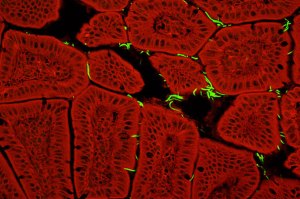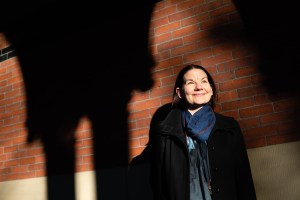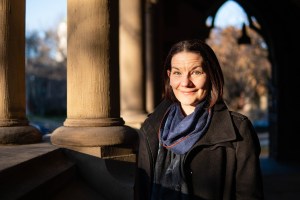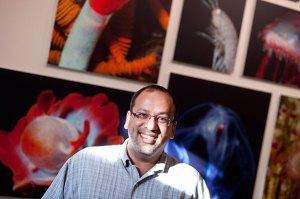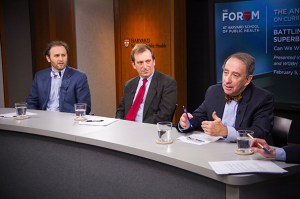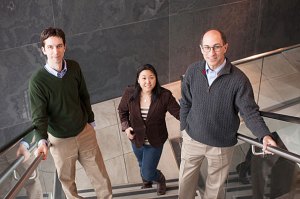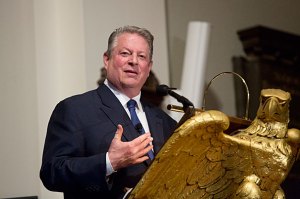Tag: Bacteria
-
Science & Tech
2 very different microbes immune to the same viruses? Scientists were puzzled.
Genomic analysis suggests host diversity is far greater than previously thought.
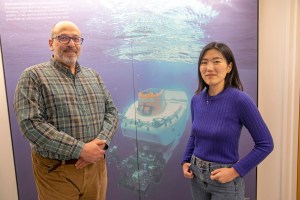
-
Science & Tech
A Rosetta Stone of biology
Harvard researcher develops program to read any genome sequence and decipher its genetic code.
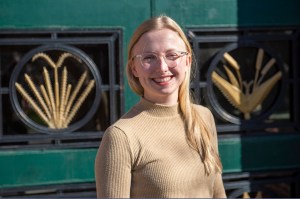
-
Science & Tech
A gut feeling
Researchers identify links between genetic makeup of bacteria in human gut and several human diseases.
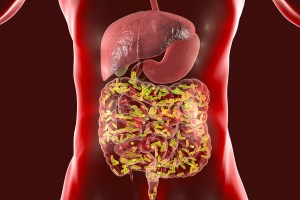
-
Science & Tech
New species in an urban ecosystem (read: solar panel)
A new species of bacteria, one that makes its home on the relatively hot and dry surface of a solar panel, was discovered recently at the Arnold Arboretum, offering a lesson that nature’s reach extends even to the artificial.

-
Science & Tech
Horizontal helper
Cassandra Extavour and Leo Blondel provide the strongest suggestive evidence yet that at least part of a specific gene came from bacterial genomes.
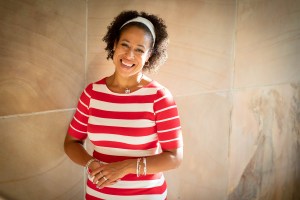
-
Science & Tech
The ‘right’ diet
Professor Emily Balskus and her team have identified an entirely new class of enzymes that degrade chemicals essential for neurological health, but also help digest foods like nuts, berries, and tea, releasing nutrients that may impact human health.
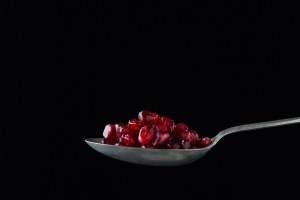
-
Science & Tech
Ending ‘dead zones’
Harvard scientists are teaming up with sustainability officers and landscaping experts to test a new fertilizer that won’t wash into water supplies.
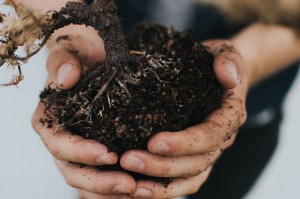
-
Science & Tech
Microbial manufacturing
Emily Balskus and a team of researchers untangled how soil bacteria are able to manufacture streptozotocin, an antibiotic and anti-cancer compound.
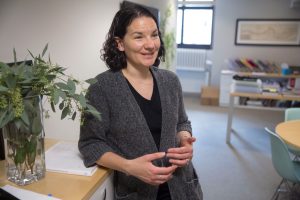
-
Health
A telephone for your microbiome
Genetic engineering allows different species of bacteria to communicate with each other in the gut of a living mouse, setting the stage for a synthetic microbiome.
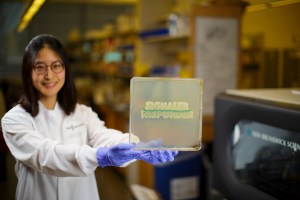
-
Science & Tech
Expanding the reach of the bionic leaf
With eye on population growth, postdoc Kelsey Sakimoto teamed up with “bionic leaf” developers on a project to aid agriculture in developing world.
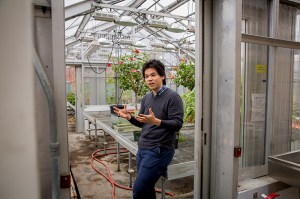
-
Health
Assumptions of how antibiotics work may be incorrect
Researchers have discovered that bacteria respond to antibiotics very differently — exactly opposite, in fact — inside the body than they do on a petri dish.
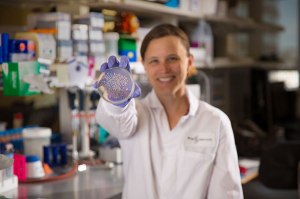
-
Health
Mystery motor
Harvard researchers have solved the mystery of how some bacteria move across surfaces with the discovery of a rotary motor in the bacterium Flavobacterium johnsoniae.
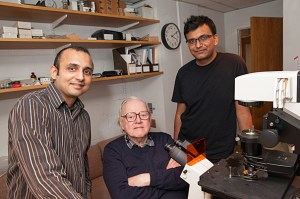
-
Science & Tech
SLIPS inspires second generation
In a study reported in Nature Biotechnology, a team of Harvard scientists and engineers has developed a new surface coating for medical devices using materials already approved by the Food and Drug Administration (FDA). The researchers noted that the coating repelled blood from more than 20 medically relevant substrates (glass, plastic, and metal) and also…

-
Health
Cheese-based research
Bauer Fellow Rachel Dutton has identified three general types of microbial communities that live on cheese, opening the door to using each as a “model” community for the study of whether and how various microbes and fungi compete or cooperate as they form communities, as well as what molecules and mechanisms are involved in the…
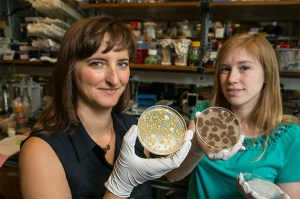
-
Health
Sizing up bacteria
A new theoretical framework outlined by a Harvard scientist could help solve the mystery of how bacterial cells coordinate processes that are critical to cellular division, such as DNA replication, and how bacteria know when to divide.
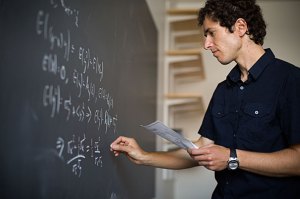
-
Health
Your gut’s what you eat, too
A new Harvard study shows that, in as little as a day, diet can alter the population of microbes in the gut – particularly those that tolerate bile – as well as the types of genes expressed by gut bacteria.
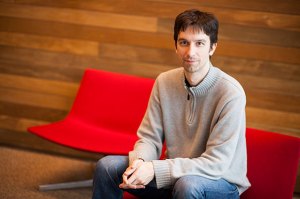
-
Health
Programming genetic code can lead to better designer genes
The key to programming bacteria to follow orders has been found in its protein production. Researchers have learned that by using more rare words, or codons, near the start of a gene, they can remove roadblocks to protein production. The knowledge may mean new drugs and biofuels.
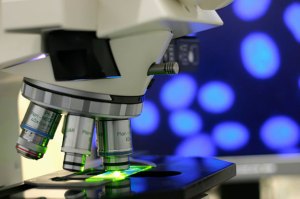
-
Health
When bacteria fight back
After the U.S. Centers for Disease Control and Prevention issued a report on the threat from drug-resistant bacteria, David Hooper, a physician at Massachusetts General Hospital and an authority on the subject, discussed the issues during a question-and-answer session.

-
Health
When timing is everything
In a new paper, Christopher Marx, associate professor of organismic and evolutionary biology, says that beneficial mutations may occur more often than first thought, but many never emerge as “winners” because they don’t fall within the narrow set of circumstances required for them to dominate a population.
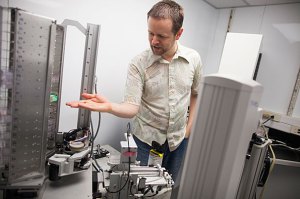
-
Campus & Community
Losick awarded Horwitz Prize
Richard M. Losick, the Maria Moors Cabot Professor of Biology at Harvard, has been named one of three winners of the 2012 Louisa Gross Horwitz Prize by Columbia University in recognition of his work to understand the intricate, dynamic, and three-dimensional organization of bacterial cells.

-
Health
Simplifying multidrug therapies
As described in a paper published in the Proceedings of the National Academy of Sciences, a research team found that by studying how drugs interact in pairs, researchers can predict how larger combinations of drugs will interact.
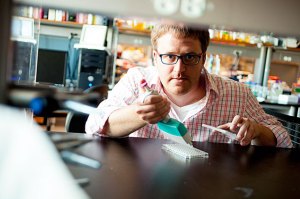
-
Science & Tech
When microbes make the food
A Harvard Summer School class spurs learning through food, by examining how microbes — bacteria and fungi — can help as well as harm when they get into food, doing much of the work preparing cheeses, beer, soy sauce, and even chocolate.
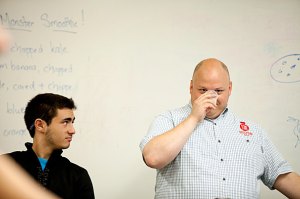
-
Health
Giving slime the slip
A team of Harvard scientists has developed a slick way to prevent the troublesome biofilms from ever forming on a surface.

-
Health
My microbes
A new study reports that the superabundance of microbial life lining our GI tracts has co-evolved with us. These bacteria, which are essential for a healthy immune system, are ultimately our evolutionary partners.
